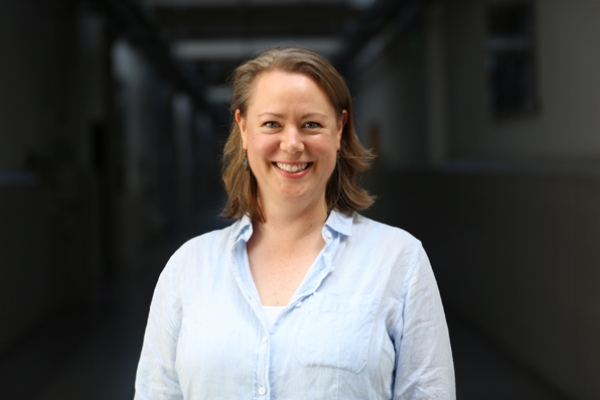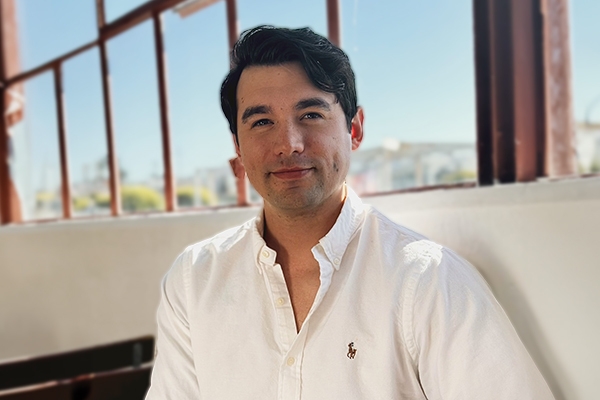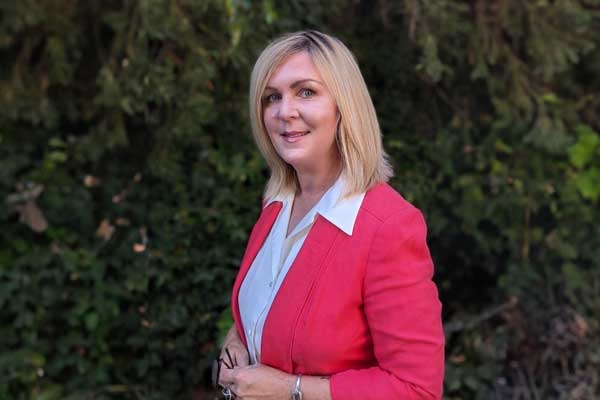Certificate Program in Project Management graduate Fernando Villanueva is a longtime human resource professional, a career well-suited to someone whose career journey was influenced by learning from and partnering with employees from diverse, ethnic and socioeconomic backgrounds.
What Fernando didn’t realize earlier in his career was that skills in project management also were necessary for his career growth and success. In fact, he was utilizing project management skills in his work, but didn’t know that there was a toolkit and a process. Before completing our certificate in 2022, Fernando had some idea of what project management was but was not aware just how much the field is present in everyday life—and that surprised him.
“We all do project management in some form, we just do not know it,” he reflects. “I think that there’s a common misconception that project management is only in construction or in software engineering. But in reality it's almost in every aspect of the work we do.”
Looking back on Fernando’s career before he registered in the certificate program, the foundation was being laid. Let’s see how it all came together from then to now.
Fernando, for your undergrad, what led you to pursue a B.S. in international business from Cal Poly San Luis Obispo?
I’ve always been fascinated with foreign countries. My first experience in learning about a culture that was not my own was during high school when I participated in a foreign-exchange program for a summer in France. I was introduced to a plethora of cultures that awoke a desire to work and live outside of the United States.
I chose Cal Poly San Luis Obispo because it is one of the top schools in California. Its international business program at the time was managed by Michael Geringer, Ph.D., and Colette Frayne, Ph.D. Without the knowledge they bestowed on me and their unconditional support, I would not be where I am today. They are the reason why I was able to work and live in the Czech Republic and really made my degree truly applicable. I’m actually featured in one of Michael Geringer’s international business textbooks, which he uses to teach his students as an example of how international business is applied in the real world.
You interned as a researcher and analyst for two years with Univerzita Pardubice (University of Pardubice) in the Czech Republic. How does this international opportunity play into your current career?
While at Cal Poly, I was part of international business club AIESEC, which provides international internship opportunities. Working and living in the Czech Republic changed my life in ways I never expected.
However, the role was not what I expected, but true to my nature I made the best of it. I had never worked outside of the U.S. before so there was definitely a learning curve. I did not know the language, I did not know anything about the country and I did not know anyone in the country. Everything I learned in my international business classes, I experienced firsthand. I experienced culture shock, I angered my coworkers due to my approach to work, and for the first time in my life I was self-aware of my ethnicity. I was no longer American; I was Mexican in the eyes of everyone around me.
It took a while to overcome the culture shock, but I was able to thanks to coworkers who made me feel welcomed and included and to the students who managed the local AIESEC chapter. They invited me to their hometowns to meet their families and friends, which made me appreciate the people, the culture and the vast wonders the country has to offer.
My experience at the University of Pardubice taught me how to be resourceful and how to work with people who think, learn and work differently than me. It also taught me to be mindful of other work cultures. Knowing how to adjust to these nuances is very important in my line of work.
After you returned to the U.S., you became a recruitment event coordinator for Intrax. In this role, you incorporated many project management basics into your HR duties. How did this position highlight project management as an important skill set to have?
That role encompassed so many fundamentals of project management. Each event is a project. You need to know what the purpose of the event is, what your scope is, who your stakeholders are, what your deliverables are, how success is measured, et cetera.
As a project manager, you are accountable for the project, you need to know how to execute a successful project, which means you need to understand the framework of project management. If you complete each step properly, then you are more likely to have a successful project. Not all projects are successful, but the likelihood of a successful outcome will increase if you execute the project properly.
You next worked at Autodesk in a variety of HR roles. How did each of these positions tap into your growing self-taught project management skills?
As a talent acquisition coordinator, university recruiting coordinator and channel programs specialist, process improvement was a key project management skill set I learned. You deal with so many processes that you eventually realize that some of them are no longer efficient. You need to improve, update and even eliminate some of those processes. This is where I first learned about what a work breakdown structure (WBS) is and how to create one. At the time, I did not know that what I was doing was creating a WBS, but now I do. Knowing what needs to be done and who does what is key to understanding where processes can be improved.
As a global mobility specialist, a key project management skill set I learned was procurement management. I dealt with many vendors, which meant that without knowing it, I learned procurement management. I was part of the team who reviewed our vendors and decided to ask new vendors to submit request for proposals (RFPs). We conducted the review and selection process and even participated in the contract and implementation phases.
Your positions at Airbnb and later with First Republic Bank and Chariot (no longer in business) focused more on the human resource aspect of international business relationships. Can you tell me about these jobs and how knowing formal project management processes could have aided in these roles?
My work at one of these companies would have benefited if I had known more about project management at the time. Knowing about the benefits of a project charter would have helped me better execute projects. There were times I did not know what the exact purpose of the project was, who my stakeholders were, what the end result was meant to be, or how we were going to measure success or completion.
If I would have known the importance of a project charter, projects would have been better executed, we would have only conducted the work that needed to be done and may have completed the projects on time.
At EAT Club and then Daylight Foods, Inc., you continued to grow in the human resources field. Then in 2021, you became an employee relations partner at Treasure Data. Why did you decide it was time to pursue a formal education in project management?
I describe myself as a “forever learner” and had always wanted to go back to school to further my education. I was introduced to UC Berkeley Extension by my friend who at the time was completing his project management certificate. He really enjoyed the program, and his enthusiasm toward it and UC Berkeley Extension really pulled me in.
I looked into the certificate, and after seeing what the course work looked like, I realized that I had been doing some aspect of project management for the past eight years. So I decided to make it official by getting a formal education on the subject with the Certificate Program in Project Management.
Of the courses you completed, which made the biggest impact on your career path?
It’s difficult to pick one as all of the courses and instructors impacted my career. Each course spoke to a specific part of work I currently do or did at some point. I do feel that the introductory project management course with Fabio De Martino gave me an idea of what project management was and what to expect. It also made me realize that I already had been doing some form of project management. I was excited to learn the structure needed in project management and how I could transfer this to my day-to-day work.
What were you able to incorporate from what you were learning in classes into your work at Treasure Data?
As an employee relations partner, I deal with not only performance management, but also a lot of special projects. One project that comes to mind is the implementation of our Remote Work and Travel Program. This started off as a process improvement project, but evolved into much more. I used my newly acquired skill set to improve the formal request process, which allowed us to better track the locations our employees were working out of and the duration they were in these locations, ensuring they were following local ordinances.
Because we work with customer data—and take that very seriously—we have to ensure security measures are in place to protect our data. We regularly review our processes and make any updates as needed.
Do you continue to incorporate your project management knowledge into your HR tasks?
I think it’s impossible not to. Whether I’m working on a new project, executing a project or even looking into improving current processes, I use the knowledge and skills learned in the certificate program every day. Even when I’m dealing with an employee relations matter, understanding how to build a high-performing team allows me to address performance matters with managers and individual contributors.
What are your career (and educational) goals now or for the future?
I’d love to pursue my M.B.A. at some point and even pursue additional certificate programs at UC Berkeley Extension.
What would you say to a student considering our project management certificate but who may be trained in another field or industry?
Review the available courses and then compare them to what you currently do and see how they connect. Take courses that speak to areas you would like to improve on or know more about that can be transferred to the work you do.
Also, take a class that not only speaks to your current role, but something that also sparks your interest. Know what your immediate needs are but also know what your future needs may be. You may be thinking about stepping into a new role, so why not take one of the courses that speak to that? Make this journey fun—and your own!



